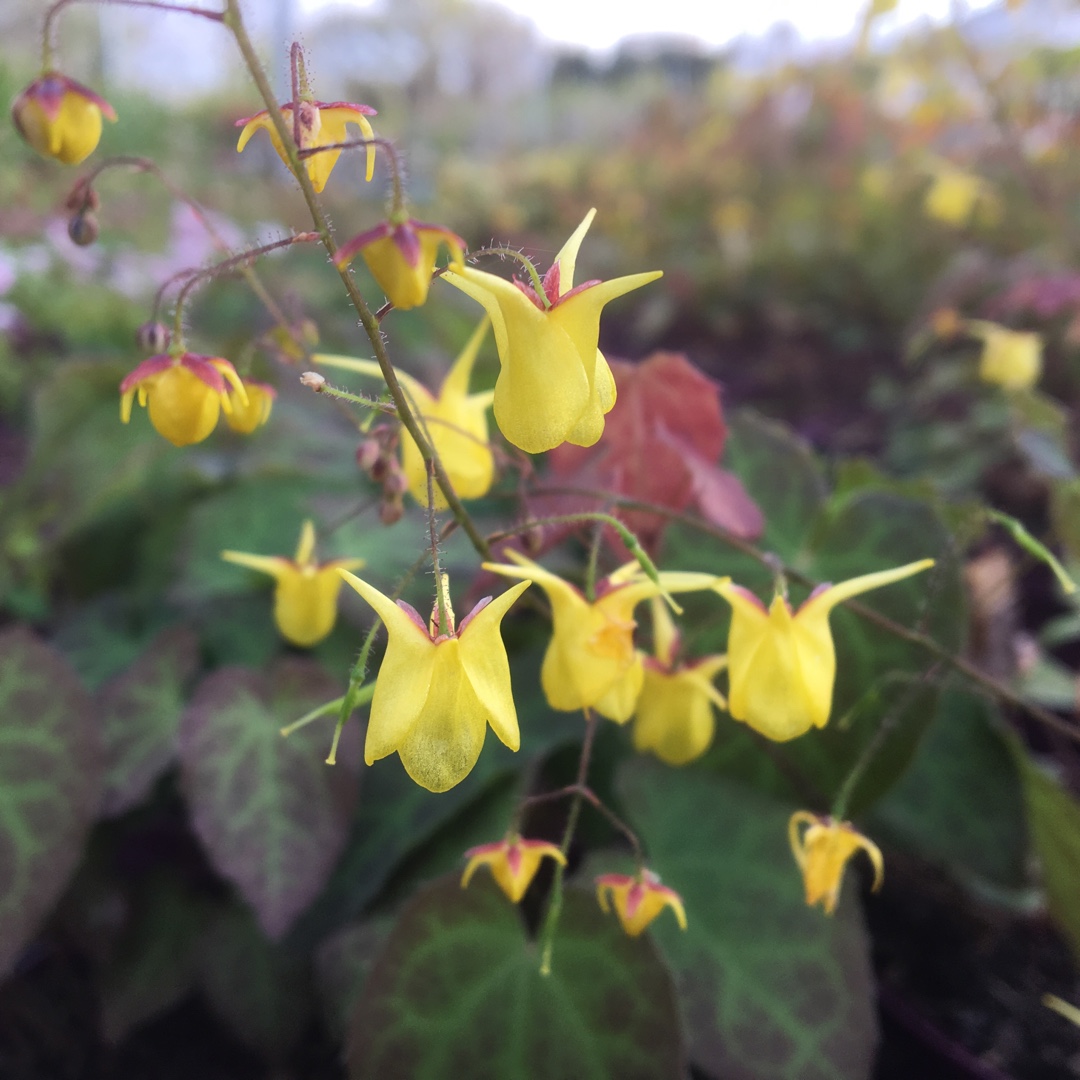
Epimedium davidii
David's Barrenwort
Epimedium species are deciduous or evergreen hardy perennials growing from an underground rhizome. The majority have four-parted "spider-like" flowers in spring. European species are often some of the most tolerant of dry shade. Japanese species such as grandiflorum are easy to grow but maybe not for the driest spots. Chinese species are ideal for the north side of a wall or a bed that receives some irrigation in eastern UK, and typical shade garden borders in the western parts of the country, where rainfall is generally higher. Davidii is a beautiful species from China. Exquisite pale-yellow flowers through spring and early summer. Young leaves have coppery tints maturing to green which persist well through the winter.
Contributed by @robbiec
-
Partial shade to deep shade
-
Very little water
-
Full Frost Hardy: 5F (-15°C)
-
Moist and free draining
Common name
David's Barrenwort
Latin name
Epimedium davidii
type
Herbaceous Perennials
family
Berberidaceae
ph
5.0 - 7.5 Acid - Neutral
Plant & bloom calendar
-
Best time to plant
full grown dimensions
 0.40 M
0.30 M
0.40 M
0.30 M
Epimedium davidii
Epimedium species are deciduous or evergreen hardy perennials growing from an underground rhizome. The majority have four-parted "spider-like" flowers in spring. European species are often some of the most tolerant of dry shade. Japanese species such as grandiflorum are easy to grow but maybe not for the driest spots. Chinese species are ideal for the north side of a wall or a bed that receives some irrigation in eastern UK, and typical shade garden borders in the western parts of the country, where rainfall is generally higher. Davidii is a beautiful species from China. Exquisite pale-yellow flowers through spring and early summer. Young leaves have coppery tints maturing to green which persist well through the winter.
Planting young plants
From Early Spring TO Early Spring
Plant epimedium in spring in the dappled shade of deciduous shrubs or on the north side of a building to mimic their home on the forest floor. Japanese or European species are suited to dry spots and Japanese species should be planted in moist but well drained soils. Do check which species you are planting.








